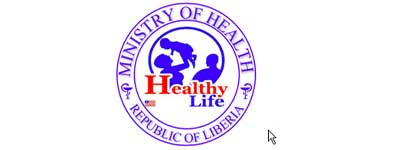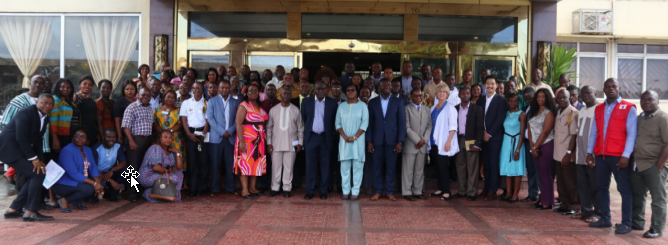Collaborating Partners









The National Action Plan for Public Health Security (NAPHS) is a five-year plan (2018 – 2022) funded by The World Health Organisation (WHO), United States Center for Disease and Control (CDC), African Field Epidemiology Network (AFENET), and many other international organizations. The plan has 19 key technical areas under four core categories; Prevent, Detect, Respond, and other International Health Regulations (IHR) related hazards and Points of Entry (PoE).
The IHR (2005) confers obligations to the Member States to annually self-report the progress of the implementation to the World Health Assembly (WHA). With the adoption of IHR (2005), Liberia has been reporting Public Health Events of International Concern (PHEIC) to the WHO. One such event was the unprecedented outbreak of Ebola Virus Disease (EVD) in 2014. Following the EVD outbreak, the WHA recommended countries shift from exclusive self-assessment to an all-inclusive internal assessment and Joint External Evaluation (JEE) strategy followed by developing and implementing a National Action Plan for Public Health Security (NAPHS).
Adequate implementation of the NAPHS is expected to reduce morbidity, mortality, disability, and socio-economic disruptions due to public health threats and events and contribute to the attainment of the health-related Sustainable Development Goals (SDG Goal 3 1).
The plan will improve health security through strengthening and sustaining Liberia’s capacity to prevent outbreaks and other health emergencies, promptly detect and confirm outbreaks, respond to and recover from the adverse effects of outbreaks and health emergencies. The plan aligns all health security interventions currently implemented through the Global Health Security Agenda (GHSA), Regional Disease Surveillance Systems Enhancement (REDISSE), and other initiatives through the One Health approach and broader health systems strengthening with whole-of-government and whole-of-society approaches.
The plan considers a set of guiding principles and core values such as country ownership and leadership; community participation; gender and human rights principles, accountability, equity in access to services; active partnerships; fostering inter-sectoral and multi-sectoral collaboration; evidence-led planning; transparency and resilience.
In July 2016, Liberia conducted a self-assessment of the IHR core capacities using the WHO assessment tool followed by the Joint External Evaluation (JEE). Liberia was the first country in West Africa and the fourth to conduct the JEE in the African region. A multi-sectoral team of experts from Liberia and an External Assessment Team (EAT) objectively assessed all the 19 technical areas using the IHR JEE tool.
The assessment team then facilitated a discussion to reach a consensus on Liberia’s current strengths, areas that needed strengthening, and priority actions. The JEE findings demonstrated that progress had been made during the EVD outbreak in some technical areas and identified gaps in others.







